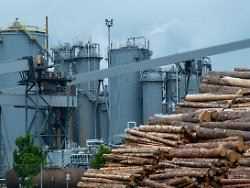Tuesday, June 29, 2021
Missing deliveries
Delivery bottlenecks cost the economy billions
The order books are full, but the materials are missing: That will be expensive for the German economy. According to estimates by the Kiel Institute for the World Economy, the losses this year will amount to around 25 billion euros. Industrial production can still hope for a tailwind.
According to estimates by the Kiel Institute for the World Economy (IfW), the bottlenecks and delays in global supply chains are likely to cost the German economy around 25 billion euros in 2021. In their published analysis, the economists assume that the “burdens will only decrease slightly in the course of the third quarter and only then will there be a clear improvement”. In the second quarter alone, German economic output is likely to have been depressed by around one percent due to the worsening delivery situation.
Industry, but also many craftsmen, have been complaining for months that urgently needed raw materials and intermediate products are missing or that their delivery is delayed. The reasons are complex: On the one hand, the growing economy of the heavyweights USA and China is making many goods scarce and expensive. On the other hand, the corona pandemic has shaken up global delivery routes in container shipping, and unpunctual ship arrivals have long been the order of the day. The result: the industry is sitting on bulging order books, but cannot process the orders.
“As soon as the supply bottlenecks are resolved, two factors will give industrial production a tailwind and for some time will likely grow significantly faster than the new incoming orders,” predicts the IfW. On the one hand, there will be catch-up effects as soon as the industry increases its production to the usual level. “The current level of incoming orders suggests an increase in industrial production of around 10 percent.” On the other hand, there are catch-up effects as soon as the pent-up orders are processed. “This will temporarily increase production above its long-term normal level.”
.
